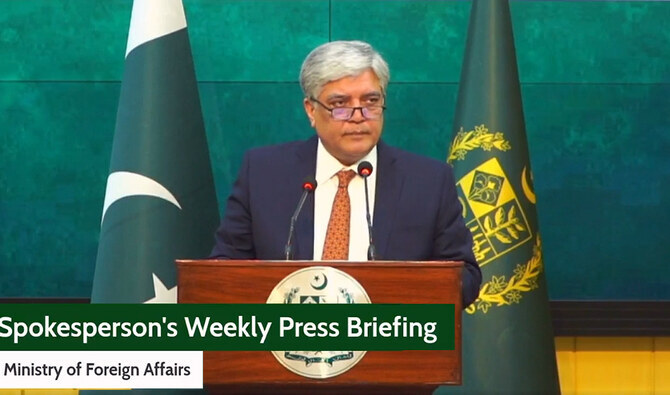ISLAMABAD: Foreign Office spokesperson Shafqat Ali Khan said this week nearly 80,000 Afghans in Pakistan had been resettled in various countries abroad, while another 40,000 still remained in Pakistan.
The 2021 withdrawal of US-led troops from Kabul ended two decades of war but began a new exodus, as Afghans clamoured to escape Taliban government curbs and fears of reprisal for working with Washington and its allies. Thousands of Afghans who had applied for resettlement in the US and European countries entered neighboring Pakistan, where many still remain trapped in legal limbo.
The latest blow has been a decision by US President Donald Trump’s administration last week to halt visa processing for refugees for at least 90 days, blocking around 10,000 Afghans approved for entry from starting new lives in the United States, according to non-profit #AfghanEvac. Tens of thousands more applications in process have also been frozen, the US-based organization said.
“I can give you a broad figure,” Spokesman Khan said in reply to a question on the number of Afghan nationals in Pakistan who were awaiting resettlement abroad.
“Almost 80,000 have been taken by various countries for resettlement and around 40,000 are still in Pakistan.”
Trump’s order said “the United States lacks the ability to absorb large numbers of migrants, and in particular, refugees,” and stopped the relocation scheme until it “aligns with the interests of the United States.”
But campaigners argue the country owes a debt to Afghans left in the lurch by their withdrawal, which Trump committed to in his first term but was overseen by his successor president Joe Biden.
A special visa program for Afghans who were employed by or on behalf of the United States remains active.
But the more wide-reaching refugee scheme was relied on by applicants including ex-Afghan soldiers and employees of the US-backed government, as well as their family members.
With America’s Kabul embassy shut, many traveled to neighboring Pakistan to enter paperwork, conduct interviews and undergo vetting.
Khan said Pakistan hoped the US would restart its refugee program so the remaining Afghan refugees could be resettled “as per commitments given by the US government.” He also hoped the US would resume foreign development assistance programs, which have also been suspended by Trump for at least 90 days through an executive order.
Islamabad announced a sweeping campaign in 2023 to evict undocumented Afghans residing in the country illegally, ordering them to leave or face arrest as relations soured with the Taliban government.
At least 800,000 Afghans have left since November 2023, according to government data.
But Afghans awaiting refugee relocation have also reported widespread harassment to leave by authorities in Pakistan, who deny the charge.















